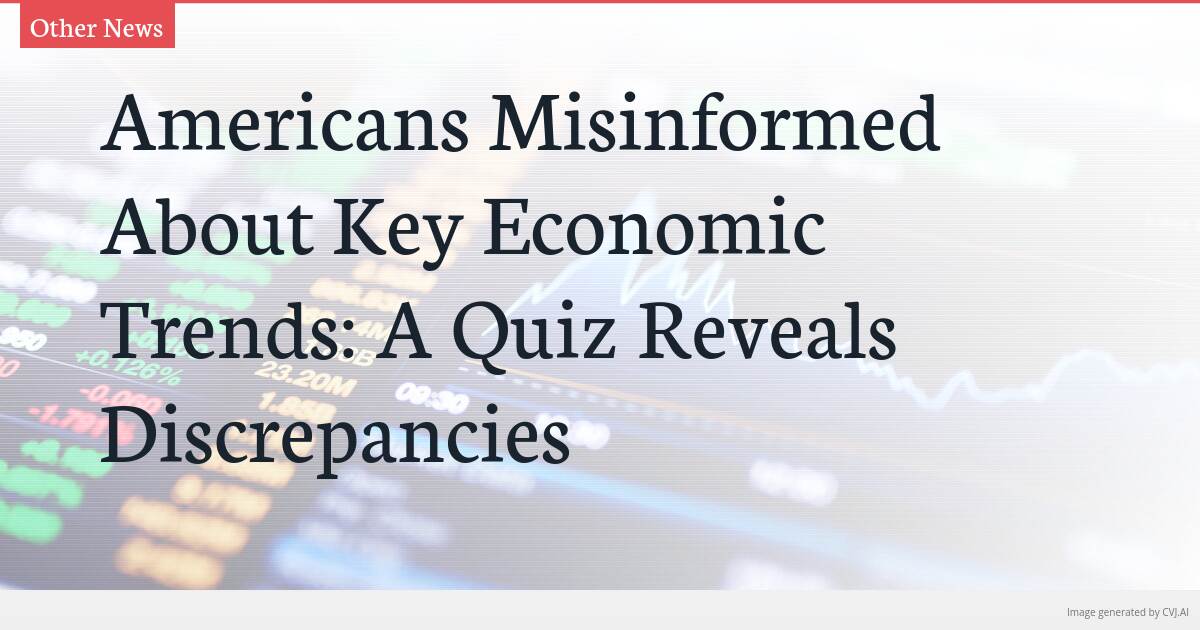This summary text is fully AI-generated and may therefore contain errors or be incomplete.
Public Misperceptions of the U.S. Economy
A significant portion of Americans hold misconceptions about the state of the U.S. economy, as revealed by a recent poll. Despite economic indicators showing positive trends, a substantial number of respondents provided incorrect answers to basic financial questions.
Misconceptions Revealed by the Poll
- Approximately 56% of those polled believed that the U.S. is in a recession, despite the economy’s growth as indicated by GDP.
- About half of the respondents incorrectly thought that the stock market was down for the year, while in reality, the S&P 500 index had climbed 11% in 2024.
- Approximately half of the participants believed that the unemployment rate was near a 50-year high, despite it actually standing at 3.9% in April, near a 50-year low.
- Around 70% of respondents thought that inflation was rising, despite it having declined to 3.4% in April.
Implications and Importance of Accurate Financial Literacy
The findings of the poll underscore the importance of accurate financial literacy and understanding of economic trends among the public. The misperceptions revealed by the poll have implications for consumer behavior, investment decisions, and public policy, as they can influence individuals’ financial choices and overall economic sentiment.
Addressing the Disconnect
Efforts to improve financial education and promote a better understanding of economic indicators may be necessary to bridge the gap between public perception and economic reality. By enhancing financial literacy, individuals can make more informed decisions about their personal finances and contribute to a more informed public discourse about the state of the economy.
Conclusion
The poll’s findings highlight the need for greater financial education and awareness of economic trends among the public. By addressing the disconnect between public perception and economic reality, individuals can make more informed financial decisions and contribute to a more accurate understanding of the state of the U.S. economy.
📎 Read the original article on cbsnews.com


